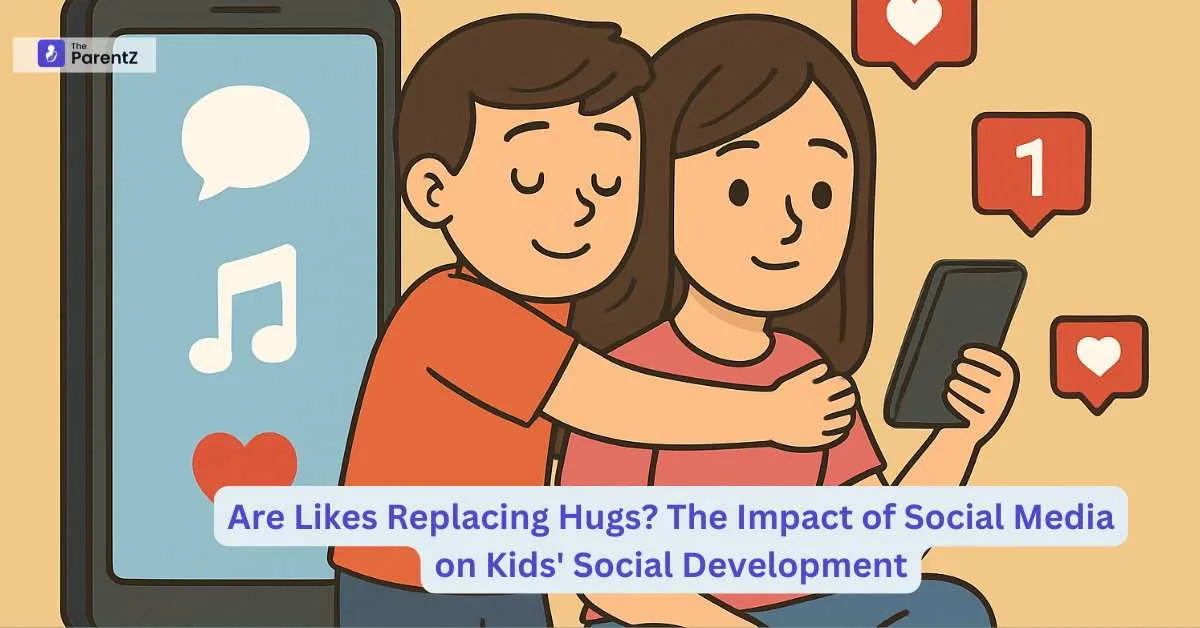You remember your child's first hug— the tight squeeze, the tiny arms wrapped around your neck. The warmth was real, raw, and unforgettable. Now, those arms are often busy holding a phone, thumbs racing to double-tap a picture or post a story. The question nags at many of us—are likes replacing hugs?
In this era of selfies and scrolls, social media has slipped into the childhood experience like a quiet guest at the dinner table—welcomed at first, now overstaying. And while technology connects people globally, many parents are starting to notice something slipping through the cracks— genuine human connection.
Read this article to explore how social media is shaping kids’ social development and what that means for the real and messy world of childhood relationships.
The Shift from Physical Affection to Digital Validation
When a child falls down, what do they need? A hug, a kiss, maybe someone to say, “You’re okay.” But today, many kids turn to Instagram or Snapchat for emotional band-aids. A post gets 100 likes? That must mean I’m loved. No comments? Something must be wrong with me.
This isn’t just poetic worry—research backs it up. According to a study, tweens (ages 8–12) now spend an average of 5.5 hours per day on screens, and much of that time involves social media. That’s hours not spent in face-to-face play or conversation—critical components of emotional development.
Likes Over Eye Contact
The truth? Many kids today are learning to seek approval not through facial expressions, conversations, or physical closeness, but through "hearts," "thumbs-ups," and flame emojis. It’s a strange, new currency where attention equals affection—and it’s highly addictive.
Kids are beginning to expect validation instantly. But real-life relationships? They take time, patience, and emotional endurance. When those skills aren’t practiced, they don’t develop. This leads to more fragile friendships, lower tolerance for conflict, and sadly, a deeper sense of loneliness.
Loneliness in a Connected World
It seems backward—how can someone surrounded by likes and comments feel alone?
But studies show that high social media use is linked with increased rates of anxiety and depression in adolescents. According to the American Academy of Pediatrics, 30 percent of teens feel persistently sad or hopeless—a number that’s been rising in parallel with digital engagement.
Why? Because likes can’t replace laughter. Emojis can’t replace empathy. And scrolling past someone’s story doesn’t mean you’re part of their actual story.
Are Hugs Being Forgotten?
Not entirely—but they’re becoming rare. Kids still crave touch, eye contact, and meaningful conversations. But if a child is emotionally regulated by their feed rather than a friend or a parent, those natural needs start to feel foreign. Awkward, even.
You might notice this at home—kids retreating to their rooms, hesitating to talk about emotions, and uncomfortable when you try to physically comfort them.
Conclusion
No, likes can’t replace hugs. But they can fill in the silence when we’re not looking. As parents, it’s our job to stay attuned—to gently pull our kids back from the glow of the screen and into the warmth of our presence.





Be the first one to comment on this story.